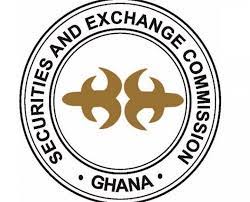By Justice OFFEI Jr
Ghana’s petroleum upstream sector has long served as a key pillar of public financing, national growth, and macroeconomic stability. The sector still holds vast potential—not just in terms of resource extraction, but as a lever for inclusive and transformative development.
However, with a consistent decline in oil production—from a peak of 71.44 million barrels in 2019 to a projected 48.25 million barrels in 2024, according to the Public Interest and Accountability Committee (PIAC) and Ghana National Petroleum Corporation (GNPC)—the need to maximize the developmental gains from existing petroleum revenues has become more urgent than ever.
Despite falling production, Ghana generated US$1.36 billion in petroleum revenue in 2024, partly due to strategic liftings and remittances such as that from PetroSA in Q1 2024. This underscores that even within a constrained output environment, Ghana can extract significant value if petroleum receipts are transparently and strategically managed.
At the core of Ghana’s petroleum revenue architecture lies the Petroleum Revenue Management Act (PRMA), 2011 (Act 815), along with key amendments such as Act 893 (2015) and Act 1138 (2025). These laws regulate how revenues—generated from royalties, surface rentals, carried and participating interests, and corporate taxes—are received and managed through the Petroleum Holding Fund (PHF).
The Petroleum Revenue Management aims to regulate the collection, allocation and management of petroleum revenue derived from upstream and midstream petroleum operations. The Act establishes four distinct funds:
- Petroleum Holding Fund (PHF): The designated public account held at the Bank of Ghana—offshore at the Federal Reserve Bank of New York—into which all petroleum revenues are first deposited.
- Ghana Stabilisation Fund (GSF): Designed to cushion the impact on public finances during periods of petroleum revenue shortfalls.
- Ghana Heritage Fund (GHF): Established to support development for future generations once petroleum reserves are depleted.
- Ghana Petroleum Wealth Fund (GPWF): To be created by consolidating the GSF and GHF after depletion of national petroleum reserves, as stipulated under Section 26 of the PRMA.
The Ghana Stabilisation Fund (GSF) and the Ghana Heritage Fund (GHF) are collectively referred to as the Ghana Petroleum Funds (GPFs). The Bank of Ghana is entrusted with the operational management of these funds, ensuring compliance with the law and transparency in petroleum revenue transactions.
Petroleum Revenue received from all eligible sources is first placed in the Petroleum Holding Fund. Section 16 of the PRMA stipulates that disbursements can only be made from the Petroleum Holding Fund to a national oil company (NOC), the Consolidated Fund (Annual Budget Funding Amount (ABFA), the Ghana Petroleum Funds, and for exceptional purposes as defined by the PRMA.
This year, 2025, under a new government, the amended PRMA (Act 1138) redefined the ABFA’s purpose—100percent of ABFA funds are now directed toward infrastructure investment, particularly under the government’s ‘Big Push’ agenda.
Only 5percent is allowed for the District Assemblies Common Fund (DACF) to address local development. The ‘Big Push’ agenda represents Ghana’s most ambitious initiative to date in using petroleum wealth to drive transformative, long-term infrastructure development. The strategy prioritizes large-scale, capital-intensive projects designed to stimulate industrialization, unlock regional integration, and generate sustainable employment.
While this pivot toward infrastructure is commendable, challenges remain. For instance, the exclusion of the Public Interest and Accountability Committee (PIAC) from ABFA allocations—following the 2025 amendment—has raised transparency and oversight concerns. Simultaneously, the GNPC’s retention of US$488.79 million in petroleum proceeds outside of the PHF (via its subsidiaries Explorco and JOHL) undermines compliance with the PRMA and reduces the availability of funds for national development.
That said, to truly maximize the gains from Ghana’s upstream petroleum sector, the country must go beyond revenue collection and adopt a holistic approach grounded in international best practices from successful petroleum-producing nations such as Norway, Nigeria, and Azerbaijan.:
- Strict compliance & transparency
Ghana must ensure strict compliance with the Petroleum Revenue Management Act (PRMA), particularly regarding the timely remittance of revenues into the Petroleum Holding Fund (PHF). In Norway, transparency and accountability in oil revenue management are pillars of success.
Its sovereign wealth fund—the Government Pension Fund Global—is widely recognized for its real-time public disclosures, independent oversight, and rigorous compliance frameworks. Ghana can adopt similar strategies by mandating real-time tracking of petroleum revenues, installing state-of-the-art metering systems on upstream facilities to prevent underreporting, and enforcing independent audits of all petroleum fund flows, with results made publicly accessible.
- Restoring independent oversight
Equally important is the restoration of oversight funding to the Public Interest and Accountability Committee (PIAC). PIAC has played a crucial role in promoting transparency in Ghana’s petroleum sector, and removing its access to dedicated Annual Budget Funding Amount (ABFA) allocations undermines this mandate. Nigeria’s Extractive Industries Transparency Initiative (NEITI) shows how empowered independent bodies can drive sector reforms. Ghana must not only restore funding but also enhance PIAC’s statutory authority to publish audits and report on compliance violations.
- Strengthened institutional and regulatory capacity
Institutional capacity remains a critical bottleneck. Licensing delays of up to two years discourage investors and slow resource development. Ghana can learn from Norway’s Petroleum Directorate, which uses a digital, transparent licensing system that ensures predictable processing times and clear milestones. A consolidated regulatory approach, with performance-based approvals and strict timelines, would enhance the investment climate and reduce inefficiencies in project implementation.
- Prioritized industrialization and local content
Ghana’s broader development ambitions hinge on translating oil wealth into sustainable industrialization. Countries like Norway and Timor-Leste have achieved this by creating deliberate industrial linkages and financing domestic participation.
Ghana must use a portion of ABFA to establish a Local Content Development Fund that finances fabrication, skill development, and SME integration. Strategic partnerships between foreign operators and local firms should include robust technology transfer provisions, while industrial projects supported by ABFA must be aligned with job creation, regional equity, and long-term economic diversification.
- Accelerated gas monetization & exploration incentives
Lastly, Ghana must accelerate the monetization of its gas resources and reform exploration licensing frameworks. Nigeria and Azerbaijan have both prioritized gas as a dual-use resource for domestic power and international markets.
Ghana must do the same by fast-tracking licensing for untapped basins such as the Voltaian Basin and offering investor-friendly incentives such as tax credits and royalty reductions. Investments in gas infrastructure—pipelines, processing facilities, and even floating LNG terminals—will be essential to boost domestic supply and regional exports, helping to sustain revenues as crude oil production declines.
With strategic management and disciplined implementation, Ghana can transform its petroleum resources into an enduring engine for national development—moving from volatility to value, and from extraction to transformation.
>>>the writer is a Petroleum Engineer & Policy Analyst










